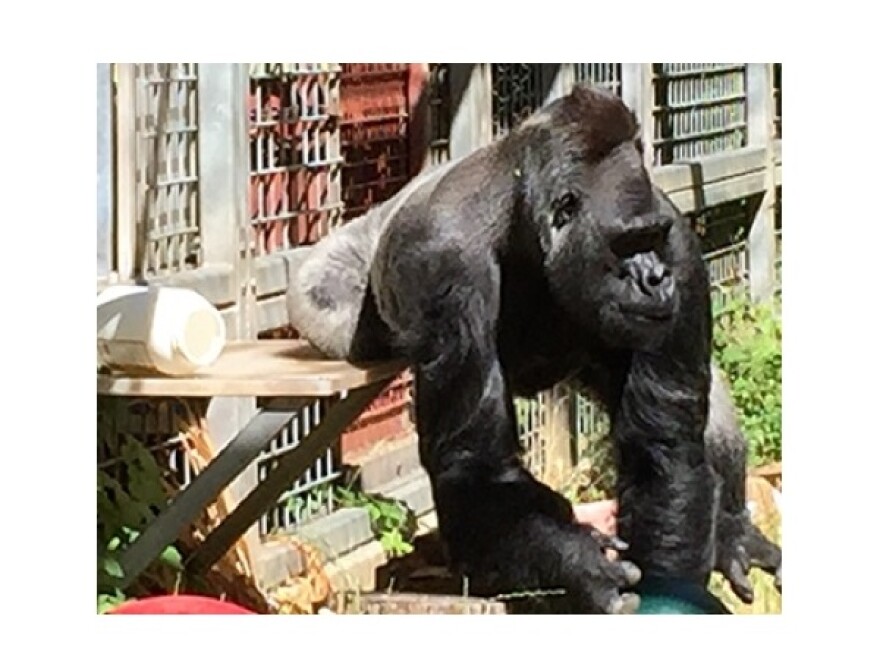The Cincinnati Zoo is taking legal action to get one of its gorillas back. The zoo filed a lawsuit in a California federal court late Thursday requesting the return of a 37-year-old gorilla loaned to The Gorilla Foundation, based in Redwood City, Calif.
The zoo loaned a silverback named "Ndume" to The Gorilla Foundation (TGF) in 1991 to be a companion for "Koko," who became famous for what was believed to be her ability to communicate with sign language.
The zoo says the agreement stated Ndume would be returned to an Association of Zoos and Aquariums' (AZA) accredited institution - in this case, the Cincinnati Zoo - following Koko's death. The female gorilla died in June, but the zoo says The Gorilla Foundation won't work with it on preparing Ndume for a transfer.
Ron Evans is curator of primates at the Cincinnati Zoo and has known and worked with Ndume since the gorilla was three years old.
"We started the transfer process and then for whatever reason we got several weeks into the planning and The Gorilla Foundation cut us off," he says. "They told us 'no, we're not going to participate in his transfer.' "
WVXU reached out to The Gorilla Foundation for comment but has not heard back.
A letter from TGF included in the legal filing states the TGF believes "the transfer is not in the best interests of Ndume" and transporting him would "unnecessarily put Ndume at risk."
The group argues Ndume "has done very poorly in zoos in the past," citing instances of feces-throwing and regurgitating food because of the stress of being on display to the public. TGF adds Ndume "cried, gave hoot-series, screamed, banged and shoved objects for 14 hours straight, all indicating extreme anguish" after overhearing discussion about transferring him back to the zoo.
In a statement, AZA President and CEO Dan Ashe stands with Cincinnati. "We're disappointed that TGF has decided to ignore its contractual commitment to the Cincinnati Zoo and the scientific determination of the AZA and is delaying Ndume's smooth transfer."
Evans says he visited Ndume frequently during his time in California. Several years ago, the zoo discovered Ndume was living separately from Koko, but Evans says the zoo decided to let Ndume stay.
"Because we realized there was a bit of a connection between Koko and Ndume, we didn't have the heart to leave Koko living in total isolation," Evans says. "So we went into an agreement with The Gorilla Foundation that as long as we could come out and supervise Ndume's care, they would send us regular reports, we would maintain Ndume out there until Koko passed, and then the [Gorilla] Species Survival Plan would make a recommendation for Ndume to transfer out."
He says it's not fair to leave Ndume in isolation.
"That is just not acceptable," he says. "That's kind of the ironic part ... the only reason we left him out as long as we did is so Koko wouldn't have to be in isolation but now they're choosing to do that to Ndume."
The Gorilla Species Survival Plan (GSSP) is also standing with the Cincinnati Zoo.
"We recommend Ndume's immediate move so that he can begin to enjoy the enriched social experience awaiting him at the Cincinnati Zoo," says Kristen Lukas, Chair of the GSSP.



